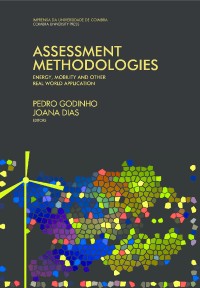Please use this identifier to cite or link to this item:
https://hdl.handle.net/10316.2/38153| DC Field | Value | Language |
|---|---|---|
| dc.contributor.author | Sousa, Jorge Freire de | |
| dc.contributor.author | Mendes-Moreira, João | |
| dc.contributor.author | Moreira-Matias, Luís | |
| dc.contributor.author | Gama, João | |
| dc.date.accessioned | 2015-11-27T16:22:25Z | |
| dc.date.accessioned | 2020-09-10T16:37:16Z | - |
| dc.date.available | 2015-11-27T16:22:25Z | |
| dc.date.available | 2020-09-10T16:37:16Z | - |
| dc.date.issued | 2015 | - |
| dc.identifier.isbn | 978-989-26-1038-2 | |
| dc.identifier.isbn | 978-989-26-1039-9 (PDF) | |
| dc.identifier.uri | https://hdl.handle.net/10316.2/38153 | - |
| dc.description.abstract | Nowadays, the major Public Transportation Companies around the world use intelligent transportation systems based on automated data collection frameworks. The existence of these data has driven to the development of new approaches to the operational planning of public transportation. These approaches, commonly known as ADC-based operational planning strategies (ADC from Automated Data Collection), to improve public transportation reliability consist of adjusting the definitions made on the initial steps of the operational planning process by using real-world data. This type of changes concentrates mainly on restructuring routes and adjusting the existing schedule plan (SP). However, the usefulness of such tunings from a company point-of-view is often of difficult evaluation. This paper starts by presenting a brief review on improving the network definition based on historical location-based data. Then, it presents a broad review on ADC-based evaluation techniques of the schedule plan reliability, discussing the existing metrics.The purpose of this paper is to critically describe the performance indicators used in the evaluation of the SP reliability, following the aforementioned bibliographic reviews. They will be certainly useful to shape the approaches developed by the research community for improving the quality of public road transportation operations based on data collected by ADC systems. This paper focuses on two different, yet highly related, approaches: 1) changing the network definition; 2) evaluating and adjusting the SP in place. The automatic control strategies and the different actions to improve the SP remain out of the scope of this paper. | eng |
| dc.language.iso | eng | - |
| dc.publisher | Imprensa da Universidade de Coimbra | por |
| dc.relation.ispartof | http://hdl.handle.net/10316.2/38126 | por |
| dc.rights | open access | - |
| dc.subject | Automated Data Collection (ADC) | eng |
| dc.subject | Operational Planning (OP) | eng |
| dc.subject | Public Transportation (PT) | eng |
| dc.subject | Network Design | eng |
| dc.subject | Schedule Plan (SP) | eng |
| dc.subject | Reliability Metrics | eng |
| dc.title | Reliability metrics for the evaluation of the schedule plan in public transportation | por |
| dc.type | bookPart | por |
| uc.publication.firstPage | 151 | - |
| uc.publication.lastPage | 169 | - |
| uc.publication.location | Coimbra | por |
| dc.identifier.doi | 10.14195/978-989-26-1039-9_7 | - |
| uc.publication.digCollection | PB | por |
| uc.publication.orderno | 7 | - |
| uc.publication.area | Ciências Sociais | por |
| uc.publication.bookTitle | Assessment methodologies: energy, mobility and other real world application | - |
| uc.publication.manifest | https://dl.uc.pt/json/iiif/10316.2/38153/213151/manifest?manifest=/json/iiif/10316.2/38153/213151/manifest | - |
| uc.publication.thumbnail | https://dl.uc.pt/retrieve/11200027 | - |
| uc.publication.parentItemId | 54536 | - |
| uc.itemId | 70670 | - |
| item.grantfulltext | open | - |
| item.fulltext | With Fulltext | - |
| Appears in Collections: | Assessment methodologies: energy, mobility and other real world application | |
Files in This Item:
| File | Description | Size | Format | |
|---|---|---|---|---|
| reliability_metics_for_the_evaluation_of_the_schedule_plan_in_public_transportation.pdf | 1.07 MB | Adobe PDF |  |
Items in DSpace are protected by copyright, with all rights reserved, unless otherwise indicated.
